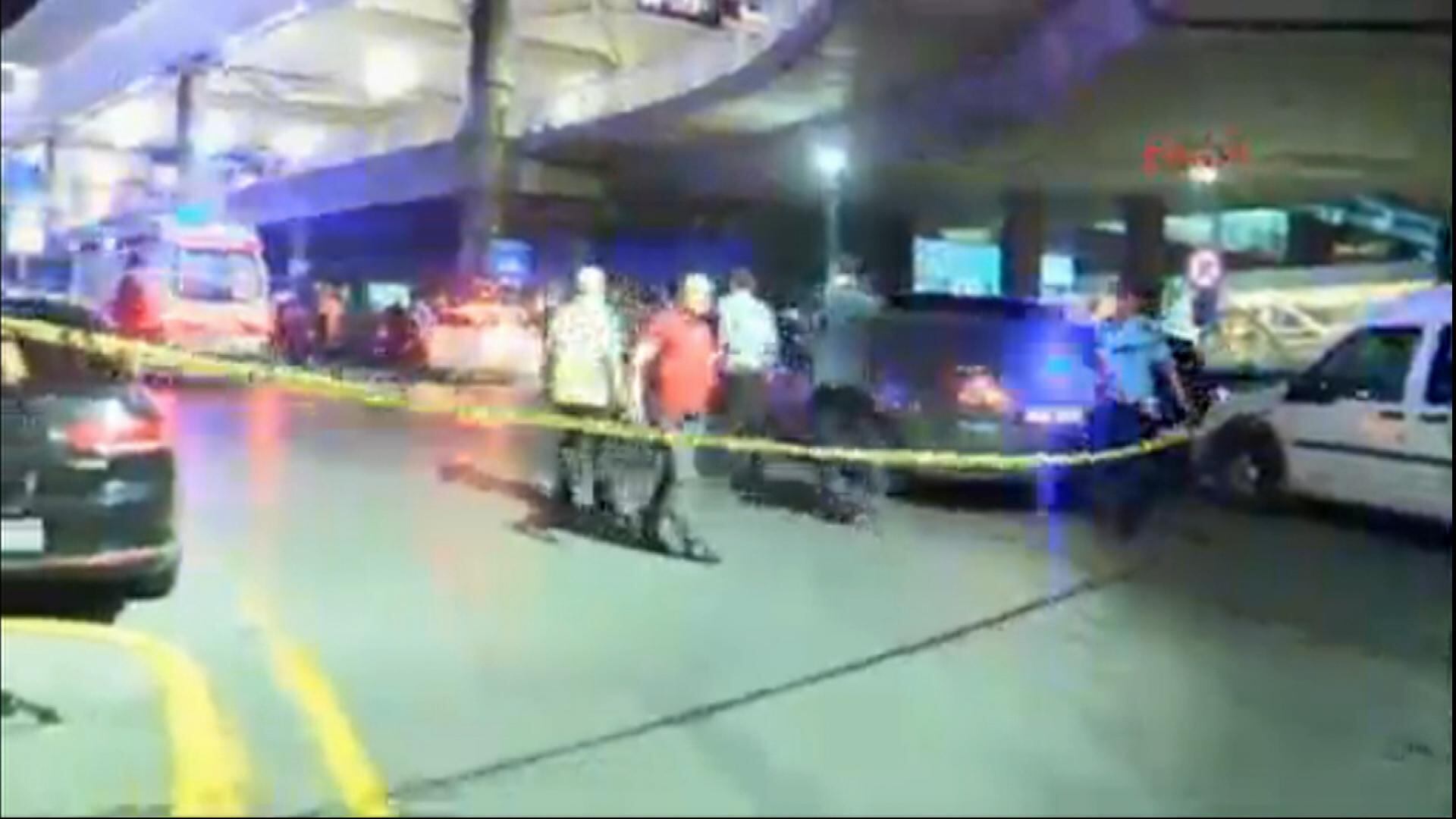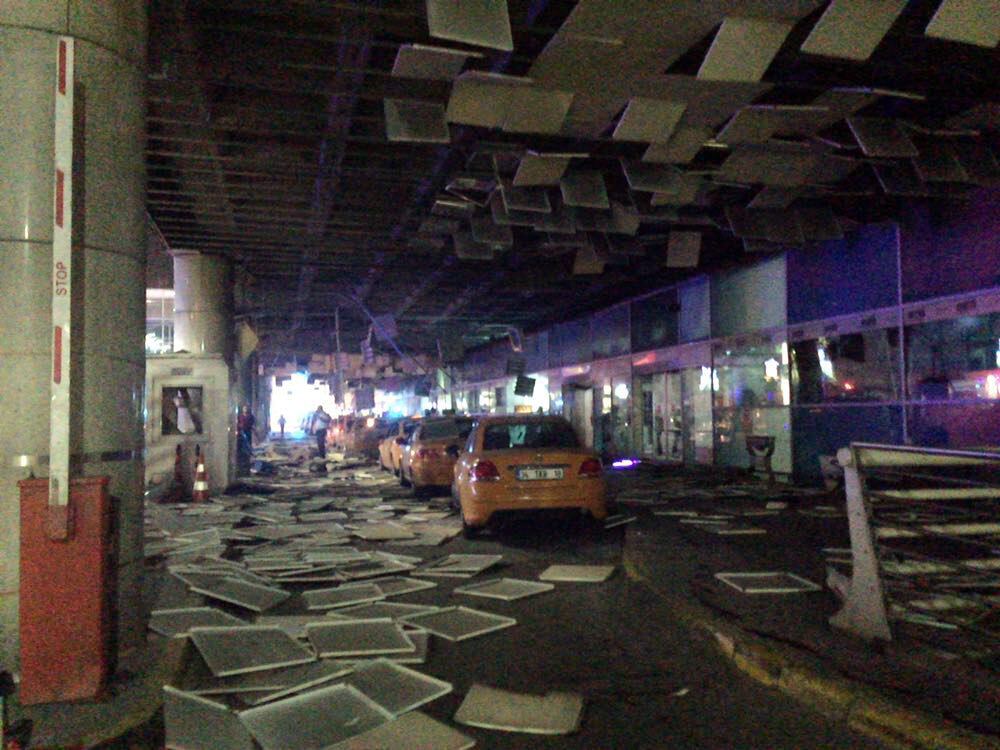ISTANBUL — At least 30 people died and dozens more were injured Tuesday after three suspected Islamic State terrorists blew themselves up at Ataturk International Airport, according to Turkish officials.
Turkish Prime Minister Binali Yildirim said three suicide bombers were responsible for the attack and all initial indications suggest the Islamic State group was behind it.
He said the attackers arrived at the airport in a taxi and blew themselves up after opening fire. Asked whether a fourth attacker might have escaped, he said authorities have no such assessment but are considering every possibility.
Turkish President Recep Tayyip Erdogan said in a statement that the incident "shows that terrorism strikes with no regard to faith and values" and vowed that "Turkey has the power, determination and capacity to continue the fight against terrorism until the end."
The Associated Press quoted an unnamed senior Turkish official, who verified that nearly 50 had died. But AP later revised that number to 32 and noted that the death toll could rise to close to 50.
The airport remained on lockdown Tuesday, the subway system was shut down, and roads leading to the airport were closed off by police. The Federal Aviation Administration suspended flights between Istanbul and the United States.
Immediately after the blasts, images shot by bystanders and local media and aired on CNN Turk showed panicked travelers cowering in stores, ambulances wheeling the injured away, and people in tears on their cellphones. One video showed a bomber detonating himself as terrified people fled for their lives moments before the explosion.

In this image taken from DHA TV, a police cordon is set up outside Istanbul's Ataturk airport, on June 28, 2016.
Photo Credit: DHA TV via AP
Witnesses described a scene of chaos. Two South African tourists, Paul and Susie Roos from Cape Town, were at the airport to fly home and were shaken by what they witnessed.
"We came up from the arrivals to the departures, up the escalator when we heard these shots going off," Paul Roos told the Associated Press. "There was this guy going roaming around, he was dressed in black and he had a hand gun."
U.S. officials condemned the attack.
"We stand in solidarity with our NATO Ally Turkey in combating the threat of terrorism," U.S. State Department spokesman Mark Toner said in a statement. "Sadly, this murderous attack is only the latest in a series of attacks aimed at killing and maiming innocent civilians. Such attacks will only reinforce our determination to work with the Government of Turkey to counter the scourge of terrorism and support all those across the region who are working to promote peace and reconciliation."
Tuesday's bombing is the latest in a wave of terror attacks in Turkey as the country grapples with a spillover from the civil war raging in neighboring Syria.
No group immediately claimed responsibility for the attack at Turkey's largest airport — the third busiest in Europe. In the past, the government in Ankara has blamed Islamic State terrorists or Kurdish separatists for recent attacks.
"I'm left speechless," said Ekin Calsir, a filmmaker in Istanbul about news of the attacks on the airport. "This hatred keeps killing us and it has to end."
"My loved ones narrowly escaped it," she added, referring to her close friend who arrived at the airport an hour before the attack. "I'm almost sure that there will be more attacks, sadly. I don't know if they will increase but they will be there as long as the war (Syria) goes on. I feel insecure."
A Turkish official, who also spoke on condition of anonymity in line with government protocol and cited interior ministry information, said none of the attackers managed to get past security checks at the terminal's entrance.
Turkish airports have security checks at both the entrance of terminal buildings and then later before entry to departure gates.
Istanbul's Ataturk airport was the 11th busiest airport in the world last year, with 61.8 million passengers, according to Airports Council International. It is also one of the fastest-growing airports in the world, seeing 9.2 percent more passengers last year than in 2014.
Turkey has been a transit point for foreign fighters entering Syria through its borders, though Washington has said the government has been cracking down on the movement recently.
Turkey opposes the regime of Syrian President Bashar Assad, but has also been concerned about the growing prominence of Kurdish fighters in Syria who are fighting Assad. Some of the rebels fighting in Syria have ties to Kurdish groups in Turkey.

An entrance of the Ataturk Airport in Istanbul after explosions, June 28, 2016. Two explosions have rocked Istanbul's Ataturk airport, killing at least 10 people and wounding around 20 others, Turkey's justice minister and another official said Tuesday.
Photo Credit: DHA via AP
Earlier this month a car bomb exploded in central Istanbul, killing at least 11 people. The banned Kurdish Worker's Party was suspected of carrying out the attack, according to media reports.
In April a female suicide bomber carried out an attack in Bursa, wounding 13 people.
An explosion in December at another airport in Istanbul left one dead.
President Obama was briefed about the incident by his homeland security adviser, Lisa Monaco, shortly after the news broke, the White House said.
Donald Trump, the presumptive Republican presidential nominee, tweeted: "We must do everything possible to keep this horrible terrorism outside the United States."
Near the airport in Istanbul, taxi driver Abdulrahman Namli said he was worried about terrorists targeting Turkey. "(We have) a big problem," he said.
Eversley reported from New York. Contributing: Bradley Secker in Istanbul, Jabeen Bhatti in Berlin and Jim Michaels in McLean, Va.; The Associated Press
